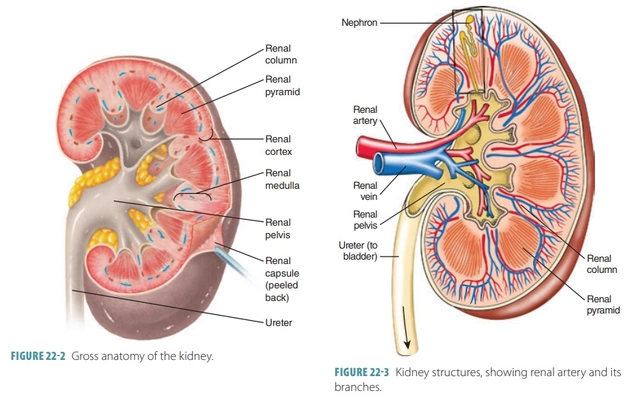
Ever thought about how your heartbeat can tell you something about your heart's health? Arrhythmias, or irregular heartbeats, are more common than you might think, and they play a big role in how your heart functions. When it comes to left ventricular failure, these irregular patterns can throw a real wrench in the works.
So, what's the deal with arrhythmias? In simple terms, they're like a middle-school dance where everyone is out of sync. This lack of rhythm can be a minor nuisance or lead to serious health issues, especially if left unchecked. The left ventricle, the heart's main pumping chamber, is particularly picky about its partners on the dance floor.
The left ventricle is responsible for pumping oxygen-rich blood to your entire body. If it's not working right, fatigue and breathlessness become your unwelcome companions. Arrhythmias can trip up this process, leading to heart failure over time.
- What Are Arrhythmias?
- Impact on Left Ventricular Function
- Symptoms to Watch For
- Managing Your Heart Health
What Are Arrhythmias?
Arrhythmias, in the simplest terms, are when your heart decides to march to the beat of its own drum. This condition refers to any irregularity in the heart's rhythm. Some beats might be too fast, others too slow, and sometimes there’s no proper pattern at all.
Types of Arrhythmias
Did you know that there are different types of arrhythmias? Here are a few:
- Tachycardia: This is when the heart beats faster than normal. It feels like sprinting even though you might be just sitting.
- Bradycardia: The opposite of tachycardia, this is when the heart beats slower than it should. Imagine trying to run a marathon in slow motion.
- Fibrillation: This chaotic heartbeat is irregular and can be extremely rapid. Atrial fibrillation (AFib) is one notable example that can lead to major problems like strokes.
Why Do Arrhythmias Happen?
The causes can be as varied as your favorite pizza toppings. It could be due to heart tissue damage, imbalances in blood potassium or sodium, or even high blood pressure. Sometimes, lifestyle factors like excessive caffeine or alcohol consumption can give your heart a jolt in the wrong direction.
Noticing the Symptoms
If your heart is skipping beats or racing unexpectedly, it’s trying to send you a message. Feelings of dizziness, shortness of breath, or even chest pain can be clues that something's not right. If you experience any of these, it might be time to have a chat with your doctor about your cardiac health.
Arrhythmias are no joke, particularly when linked to left ventricular failure. But the good news is, with the right attention and care, they can be managed quite effectively.
Impact on Left Ventricular Function
So how exactly do arrhythmias mess with the left ventricle, the heart’s main power player? Well, it's all about timing, and when that’s off, trouble brews. Imagine your heart as a well-oiled machine that needs perfect coordination. Now throw in irregular heartbeats, and suddenly the engine starts sputtering.
Arrhythmias can disrupt the synchronization between the upper and lower parts of the heart. This is a big deal because the left ventricle needs a neat, systematic approach to pump blood out efficiently. When it’s out of sync, it can't pump enough blood to meet your body’s needs, leading to left ventricular failure.
Going Deep: Types and Effects
Different types of arrhythmias impact the left ventricle in varied ways:
- Atrial Fibrillation: The most common type, causes the upper chambers to beat irregularly, reducing the efficiency of the ventricles.
- Ventricular Tachycardia: Rapid heartbeats originate in the ventricles, which may cause them to pump inefficiently.
- Bradycardia: Slower-than-normal heart rate can lead to insufficient blood supply to the body.
Stats at a Glance
Let's look at some numbers to highlight the connection:
| Condition | Prevalence in Patients with Heart Failure |
|---|---|
| Atrial Fibrillation | 30-50% |
| Ventricular Tachycardia | 20-30% |
As you can see, these rhythms can wreak havoc, underscoring why it’s crucial to catch them early. Unless managed, they can slowly wear down the heart's efficiency, leading to worsening heart failure over time.
You don’t have to face this alone. If you suspect any erratic beats, your best bet is to have a chat with your healthcare provider. Early intervention is key to managing the impact on your heart’s hero—your left ventricle—and keeping everything in sync.

Symptoms to Watch For
Spotting the signs of left ventricular failure early can make a world of difference for heart health. Many folks brush off these symptoms as just getting older, but paying attention could mean catching something serious before it gets out of hand.
Fatigue and Weakness
One of the big red flags is feeling constantly tired or unusually weak. If climbing a flight of stairs or simple daily chores leave you feeling wiped, it might be time to check in with your doctor.
Shortness of Breath
Getting winded easily is another major sign. Whether you’re just having a chat or trying to sleep, if breathing becomes an effort, it’s a clear signal that your heart might not be pumping efficiently. Lying down might even make it worse, leading to restless nights.
Swelling in Legs and Ankles
Keep an eye out for swelling, particularly in the legs, ankles, or feet. It might seem no big deal at first glance, but this puffiness can show that blood isn’t flowing like it should, often due to heart trouble.
Frequent Arrhythmias
Irregular heartbeats or a racing heart isn’t just about feeling anxious or stressed. These arrhythmias could signal that your heart needs attention. Skipped beats or a fluttering sensation aren’t as harmless as they might feel.
Persistent Cough
A cough that doesn’t seem to go away could do more than annoy you and everyone around you; it might also be a sign of heart failure. In some cases, you might even cough up a frothy mucus, occasionally tinged with blood, which is definitely a sign to see a doctor pronto.
Changes in Urination
If you notice a frequent need to pee at night or a significant drop in daytime urination, it might seem like your body's trying to tell you something. Yep, that something could be about your heart function.
Keeping these symptoms on your radar can be a game changer. Don't shrug them off as just part of life. If any of this sounds familiar, it's a cue to connect with your healthcare provider.
Managing Your Heart Health
Keeping your heart healthy, especially when dealing with arrhythmias and left ventricular failure, takes some focus. But with the right steps, you can make a big difference in your overall cardiac health.
Make Lifestyle Changes
Start by making simple lifestyle adjustments. Think about your diet: keeping things heart-friendly is crucial. Aim for a balanced mix of fruits, veggies, whole grains, and lean proteins while cutting back on processed foods and salt.
- Reduce Sodium Intake: Too much salt can lead to high blood pressure, which isn't great for your heart.
- Stay Active: Regular physical activity helps keep your heart strong. Find something you enjoy, like walking, swimming, or cycling.
- Kick Bad Habits: Smoking and excessive drinking put extra strain on the heart, so it's a good idea to cut back or quit.
Medications and Monitoring
Your doctor might suggest medications to help manage symptoms or prevent further damage. It’s important to take these as directed. Regular check-ups allow healthcare providers to assess your heart’s function and make any necessary tweaks to your treatment plan.
"Consistent monitoring and appropriate treatment can significantly improve life quality for heart patients," says Dr. Elaine Carter, a well-known cardiologist from Sydney Heart Institute.
Know the Numbers
Ever wondered about your heart rate or blood pressure? These numbers offer vital clues about your heart disease risk. Use them to your advantage:
| Indicator | Normal Range |
|---|---|
| Blood Pressure | Less than 120/80 mmHg |
| Resting Heart Rate | 60-100 bpm |
Staying within these ranges is a good sign that your heart’s on a healthy path. If things are off, it could be a hint to check in with your healthcare provider.
Stay Informed and Involved
Being proactive about your heart health means staying informed. Joining support groups or heart health workshops can lead to valuable insights. Connect with others who understand the journey, and you may find some unexpected allies and friends along the way.
Ultimately, managing your heart health needs a bit of effort and persistence, but sticking with the plan means you’re giving yourself a fighting chance against cardiac health challenges.
6 Comments
Write a comment
More Articles

Azathioprine and Kidney Function: What You Should Know
As someone who's always keen on learning about health and medications, I recently came across some vital information on Azathioprine and its impact on kidney function. Azathioprine is an immunosuppressive drug, mainly used to prevent organ rejection after transplantation and to treat autoimmune diseases. While it can be effective for these conditions, it's important to be aware that long-term use may lead to kidney damage, especially in high doses. Regular monitoring of kidney function is essential for those on this medication to ensure they remain healthy. It's always best to discuss any concerns with your healthcare provider to make informed decisions about your treatment options.



Michelle Lyons
March 22, 2025 AT 11:09They say arrhythmias are just heart glitches... but what if they're not? What if they're the body's way of screaming that the grid is being manipulated? I've seen people on meds for AFib and then suddenly drop dead. Coincidence? I think not. The FDA, Big Pharma, and the power grid are all connected. Your heartbeat is being monitored. They want to know when you're vulnerable.
They're using your arrhythmias as data points. Don't believe me? Look up the NSA's heart rhythm surveillance patents. It's all there. You think your pacemaker is helping you? It's feeding them.
Stop taking the pills. Start grounding yourself. Walk barefoot on the earth. Your heart will thank you... or maybe it'll just stop. Either way, you'll be free.
They're watching. Always watching. 😈